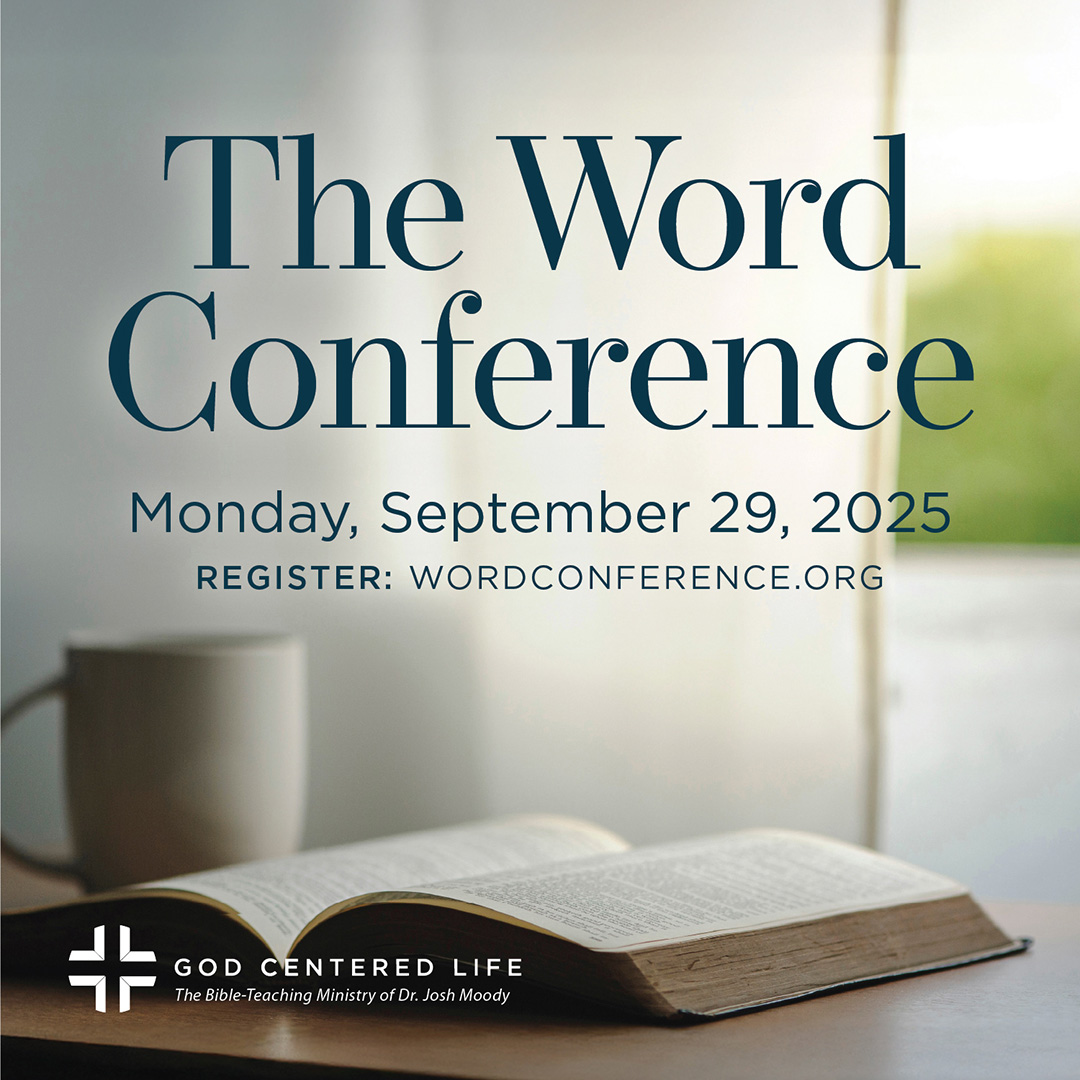Luke 11:1-13: Pray!
July 17, 2025
TODAY'S BIBLE READING:
2 Chronicles 10-12, Psalm 142, Luke 11:1-13, 1 Thessalonians 5:1-11

Luke 11:1-13:
We come now to the famous “Lord’s Prayer” that Jesus taught his disciples. Note that Jesus was himself praying. It is well to record the number of times that Jesus is mentioned as praying. If he must pray, how much more must we!
Note, also, that when the disciples ask Jesus to teach them to pray, they refer to the way that John had taught his disciples to pray. Teachers, leaders, pastors, do not neglect this aspect of instruction. We are quick to teach people to study the Bible. We are quick to teach people to evangelize. We are quick to teach people to be holy and pure and generous. But how much do we teach them to pray? If we follow the biblical example, we will teach people to pray.
Then comes the prayer itself.
– “When you pray, say.” This is essentially equivalent to the instruction given before the Lord’s Prayer in Matthew’s Gospel: “This is how you should pray” (Matthew 6:9). Note that this is a “model” prayer, not a repetitive prayer. There is nothing wrong with repeating the Lord’s Prayer by rote. There is nothing wrong with repeating the Lord’s Prayer in church. But what matters is the spirit of prayer—that these words shape and model our prayers. To say these words with our mouths and not mean them with our hearts is no better than not praying at all.
– “Father, hallowed be your name.” The Christian prays to his or her Father. What a glorious, respectful, awesome intimacy! God is our Sovereign. He is Almighty. But by the Spirit of adoption, we cry “Abba, Father”! We can approach God as “Father.” And also note this: the heart of true prayer is not to “get things” but to honor God.
—“Hallowed be your name.” The Christian prays for God’s name to be held in high esteem.
–“Your kingdom come.” See how God-centered is this prayer! Having started with asking for God’s name to be hallowed, it now continues with asking for God’s kingdom, or his rule, to be extended and established. God’s kingdom is where the king reigns. He reigns in the hearts of those who have submitted their lives to him by faith. He reigns in the true church that follows him by faith. One day he will perfectly reign in the New Heaven and New Earth. When we pray for God’s kingdom to come, we are praying for the extension of his reign through people coming to faith for the first time, for Christians growing in their holiness and Christlikeness, for the further establishment of the church in this world, and for the coming return of Jesus.
–“Give us each day our daily bread.” How practical is Jesus! We, if we remember to begin with God as this prayer does, can run to the other extreme and become super-spiritual and not bring to God our real human needs. For some this is a literal request. We need food. For others, it is a financial request. We cannot pay our bills. For all of us it is a daily request: we need help each day to meet the challenges of that day. Note that this prayer suggests an emphasis on praying in the morning. We are looking ahead to the day—with all its trials and tribulations—and asking that God would provide our needs (not necessarily our desires!)
–“Forgive us our sins, for we ourselves forgive everyone who is indebted to us.” The need to pray each day for our own personal forgiveness underscores the ongoing presence of sin even in the most mature of believers. Do not deny that we are still sinful. That way leads to growing sin and depravity. Do not avoid prayer because you feel sinful. That way leads to growing distance from God. Instead, keep short accounts and go to God each day asking for forgiveness.
Note the connection between asking God for forgiveness and ourselves forgiving those who have sinned against us. A forgiven person is, by spiritual necessity, a forgiving person. If we do not forgive others, then it is a sign that we have not been forgiven ourselves. Conversely, if we do forgive others, it is a sign that we ourselves have been forgiven. One of the reasons why there is so much friction, fighting, taking people to court and suing each other—unforgiveness in other words—is because those people themselves have not experienced the grace of personal forgiveness. The way to restore harmony in our world is to proclaim and receive the gospel of the forgiveness of sins. When we have been forgiven, we will find it almost ludicrous not to forgive someone for the relatively small, petty sins against us.
Note: forgiveness of someone’s sins does not mean approving of what they did. In fact, forgiveness of someone means that that person did wrong! Otherwise, they would not need forgiving.
Note: forgiveness of someone does not necessarily mean reconciling to that person in an intimate relationship. Sometimes it is unwise to be in a relationship with a person in an intimate way if you do not have confidence that they will not hurt you again.
–“Lead us not into temptation.” Why should we pray that God lead us not into temptation when we know that God does not tempt us (though he does test us)? We are asking for God’s help to do what God’s Word has promised he will do. “No temptation has overtaken you that is not common to man. God is faithful, and he will not let you be tempted beyond your ability, but with the temptation he will also provide the way of escape, that you may be able to endure it” (1 Corinthians 10:13).
To drive home the importance of prayer, Jesus now tells a parable to encourage us to keep on praying even if at first it seems our prayers are not heard. This is an argument of the form “if someone this bad behaves this way, then how much will someone that good certainly behave this way too.” If we are going to respond to the urgent phone call of a friend at midnight who needs help, how much will God not respond to our midnight cries of aid! Of course he will!
Therefore “ask, and it will be given to you; seek, and you will find; knock, and it will be opened to you” (Luke 11:9). That verse should be written on the stationery of every Christian organization, behind the pulpit of every church, in the boardroom of every company, on the walls of every home, in the journal of every disciple. Pray! You have not because you ask not! Therefore, ask! There is a mystery to prayer.
Why has God, though he is sovereign, so arranged things that prayer is this powerful? When you have figured out the answer to that question, let me know. In the meantime, I will pray!
Somehow, because God is our Father, he has arranged the system so that that which we most need—even our daily bread—is provided in answer to prayer. The inevitable consequence of this is a deepening relationship with him. Which is what God most desires! Therefore, pray!
Finally, note the beautiful promise: “how much more will the heavenly Father give the Holy Spirit to those who ask him!” (Luke 11:13). Even the Holy Spirit is given in response to prayer. Then, again, pray!
ABOUT THE AUTHOR
Josh Moody (Ph.D., University of Cambridge) is the senior pastor of College Church in Wheaton, IL., president and founder of God Centered Life Ministries, and author of several books including How the Bible Can Change Your Life and John 1-12 For You.
WANT MORE?
To receive God Centered Life devotionals directly in your inbox, as well as other resources, enter your email address in the form at the bottom of this page and click "subscribe."


